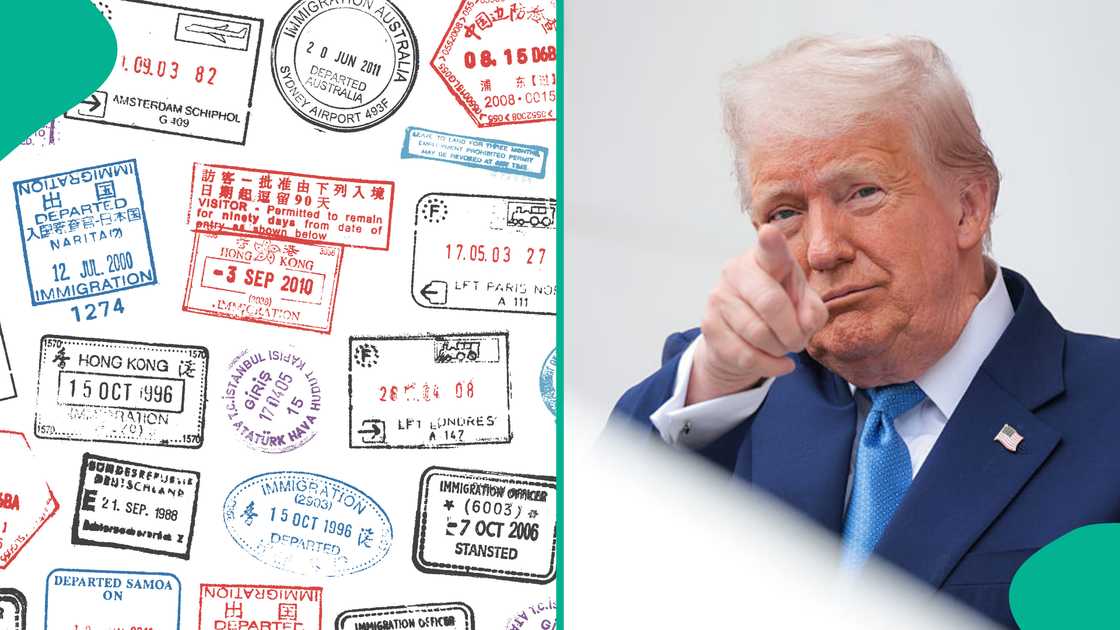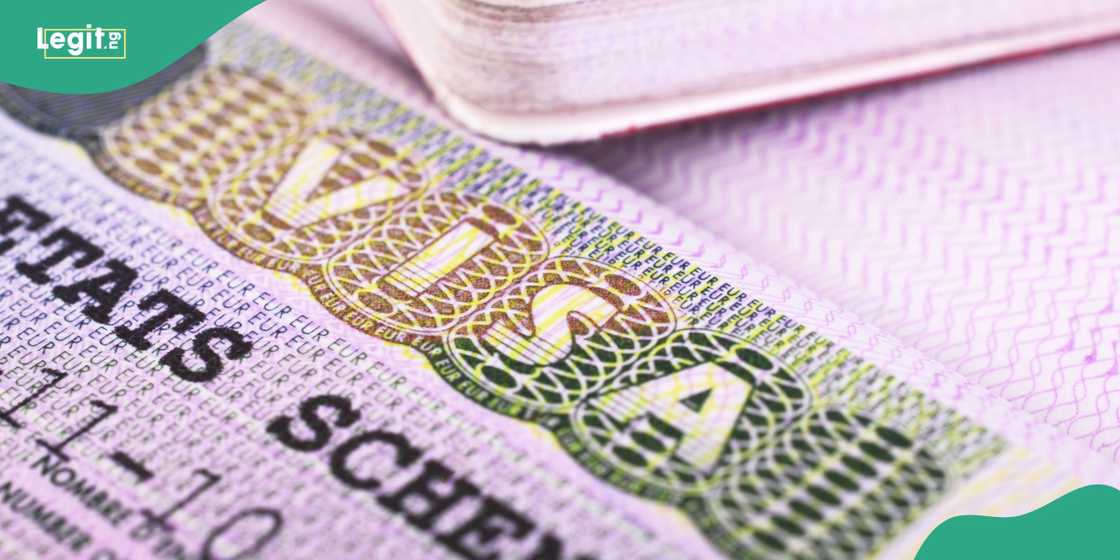Trump Bans 12 Countries Completely from Coming to the US, Releases Full List
- President Donald Trump signed a proclamation on 4 May, imposing a sweeping travel ban on nationals from 19 countries, citing security concerns
- The restrictions, which take effect on 9 June, fully block entry from 12 nations while partially limiting travel from seven others
- The decision follows an antisemitic attack in Boulder, Colorado, accelerating the administration’s push for tighter border controls
President Donald Trump signed a proclamation enforcing a sweeping travel ban on multiple nations, citing security risks.
The ban, set to take effect at 12:01 a.m. on 9 June, will fully restrict nationals from 12 countries and impose partial restrictions on seven others, CNN confirmed.

Source: Getty Images
Complete entry ban for 12 nations
The proclamation barred entry to nationals from Afghanistan, Myanmar (Burma), Chad, Republic of the Congo, Equatorial Guinea, Eritrea, Haiti, Iran, Libya, Somalia, Sudan, and Yemen. The decision, according to the White House, stems from concerns over vetting deficiencies, high visa overstay rates, and inadequate information-sharing practices.
Partial restrictions for seven countries
Alongside the outright bans, the proclamation placed partial restrictions on travelers from Burundi, Cuba, Laos, Sierra Leone, Togo, Turkmenistan, and Venezuela.
However, certain exemptions were outlined, including allowances for lawful permanent residents, individuals with existing visas, and those whose entry aligns with US national interests.
See X post below:
Boulder attack accelerated decision
A White House official revealed that the president finalized the proclamation following the antisemitic attack in Boulder, Colorado.
While the directive had been under consideration beforehand, Sunday’s assault expedited the signing process.
White House deputy press secretary Abigail Jackson defended the move, stating: “President Trump is fulfilling his promise to protect Americans from dangerous foreign actors that want to come to our country and cause us harm.”
“These commonsense restrictions are country-specific and include places that lack proper vetting, exhibit high visa overstay rates, or fail to share identity and threat information,” she added.
Potential expansion of travel ban
Trump suggested that the list could expand based on evolving global threats. In a video posted on Wednesday, he asserted: “The list is subject to revision based on whether material improvements are made. And likewise new countries can be added as threats emerge around the world, but we will not allow people to enter our country who wish to do us harm and nothing will stop us from keeping America safe.”
Historical precedent and impact on Afghan nationals
This proclamation follows a similar directive from Trump’s first term, when he restricted travel from seven majority-Muslim countries—a policy later overturned by President Joe Biden in 2021.
The inclusion of Afghanistan in the ban raised concerns regarding Afghans who had worked alongside US forces during its two-decade military presence there. The administration had previously enacted measures halting the US refugee admissions program and cutting foreign aid for Afghan Special Immigrant Visa (SIV) holders.
Resettlement advocates voiced concerns over the implications of the ban. Shawn Vandiver, founder of #AfghanEvac, stated that it “disproportionately affects families and individuals seeking lawful entry into the US.”
“The proclamation is a strategic move, not a response to an immediate threat,” he added.
Governments of affected nations also criticized the measure. Venezuela’s Minister of Interior, Justice and Peace, Diosdado Cabello, remarked on national television: “If you’re really that foolish, then go to the United States.”
Oxfam America’s President and CEO, Abby Maxman, condemned the ban, describing it as a “chilling return to policies of fear, discrimination, and division” that would force vulnerable individuals to remain in perilous conditions.

Source: Getty Images
Trump stops Harvard university from enrolling Nigerians
Legit.ng earlier reported that the Trump administration revoked Harvard University's ability to enroll international students on May 22, forcing thousands of existing foreign students to either transfer to other institutions or risk losing their legal status, the Department of Homeland Security announced.
Homeland Security Secretary Kristi Noem ordered the termination of Harvard’s Student and Exchange Visitor Program certification, citing concerns about the university’s alleged ties with the Chinese Communist Party and accusations of fostering antisemitism and violence, AFP and Reuters reported.
Source: Legit.ng





